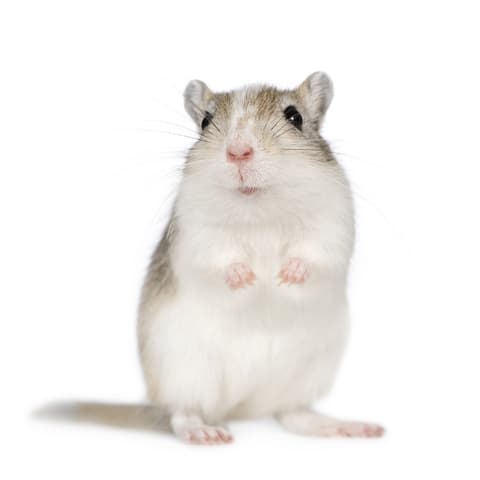It’s true that gerbils have friendly, trusting and curious personalities that make them fun pets for the whole family, but there’s something else you should know: gerbils eat their own poop.

It’s actually healthy for gerbils to eat poop. Bacteria living in their intestines excrete B vitamins, which the gerbils can only ingest on a second trip through the digestive tract. In his definitive compendium of Gerbilinae propagation The Professional’s Book of Gerbils: Keeping And Breeding, jerboa expert Robert Bernhard admits eating it’s own poop isn’t a gerbil’s most appealing trait: “While this sounds repulsive, gerbil feces are odorless, not much larger than bread crumbs, and barely recognizable for what they represent.”
What makes a gerbil’s poops so edible? Turns out, the lack of water on the Mongolian steppes forced our pets’ ancestors to survive in the wild without drinking anything at all. Gerbils evolved to get water from the fats contained in seeds. Even in captivity, they don’t need much more than a thimble-full of water daily. A dehydrated diet means dehydrated waste pellets ready to re-ingest. Buon appetito!

I wish I could tell you each gerbil only eats the poop that came from its own individual butthole, but that’s not exactly true. Gerbils also eat baby poop. For the first two weeks, when pups are blind, hairless and helpless, they need their mothers to lick them to clear fluid from their lungs, start digestion and clean the nest of waste. The father gerbil helps sometimes, and Bernhard says it’s really best if humans don’t interfere. (I wasn’t planning to, Bob, but go off.)
In conclusion, gerbils have an unsettling predisposition to ingest their own poop (as well as that of their offspring) as a direct result of evolving on the same central Asian grasslands where Genghis Khan learned the horse riding, archery and fighting skills he would use to conquer the civilizations around him and form the largest contiguous empire in history after his death.



